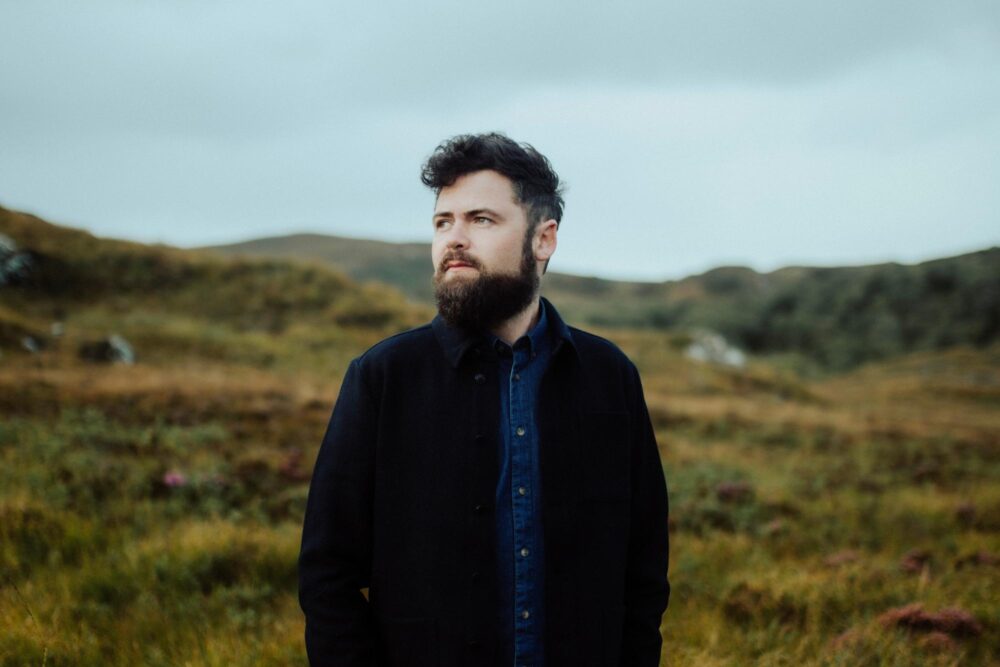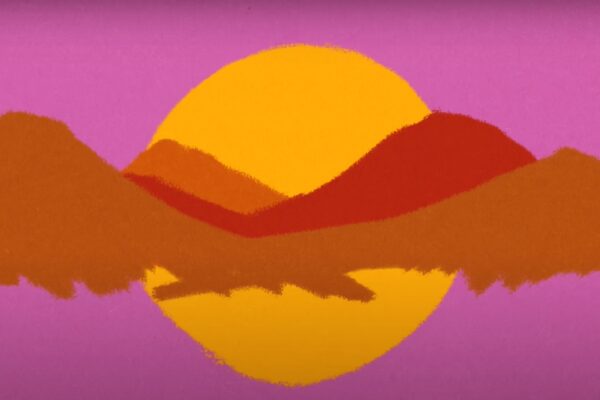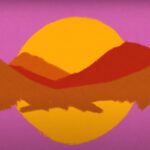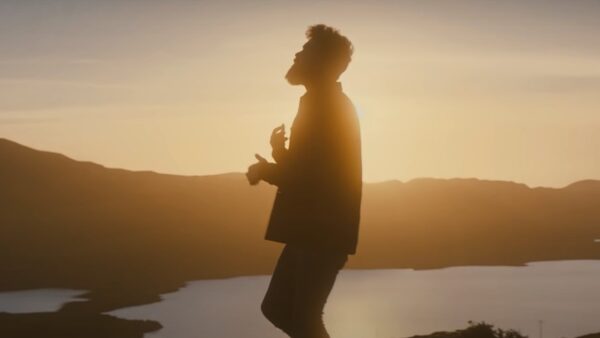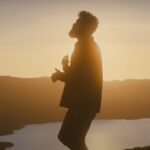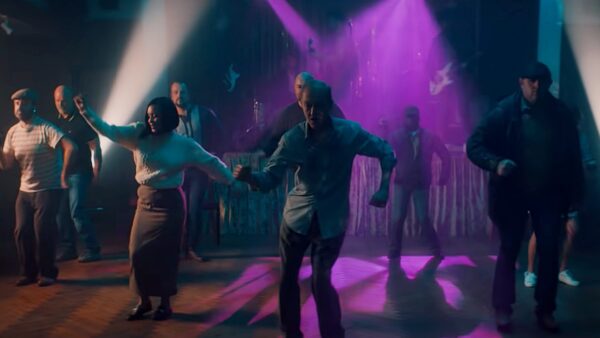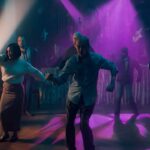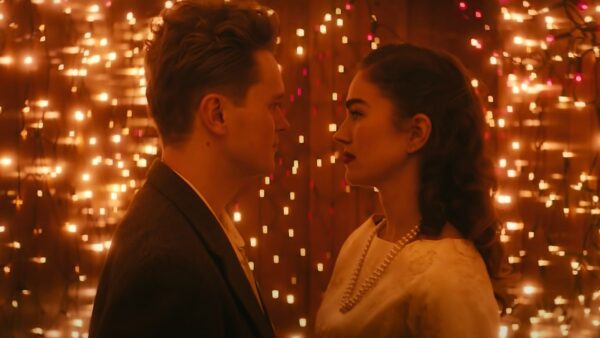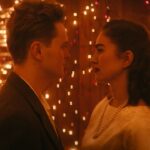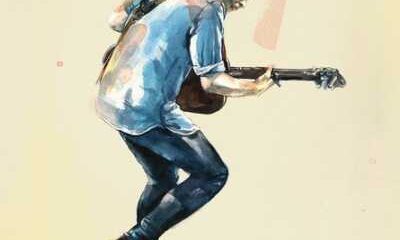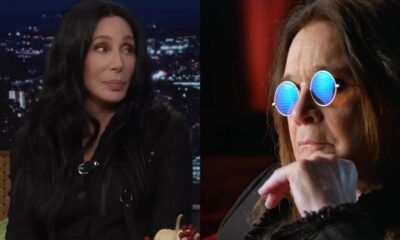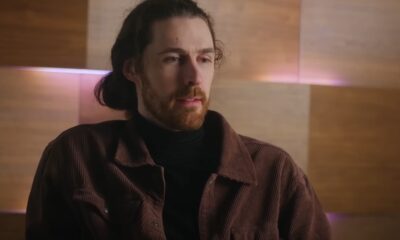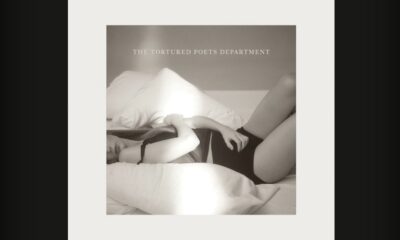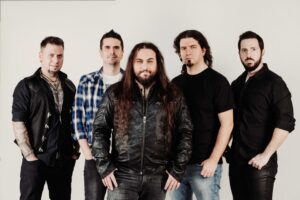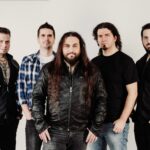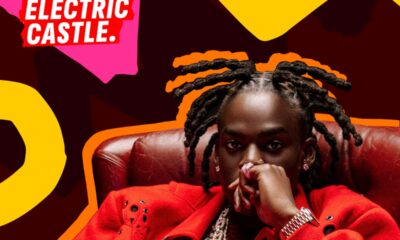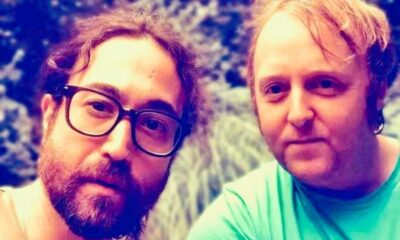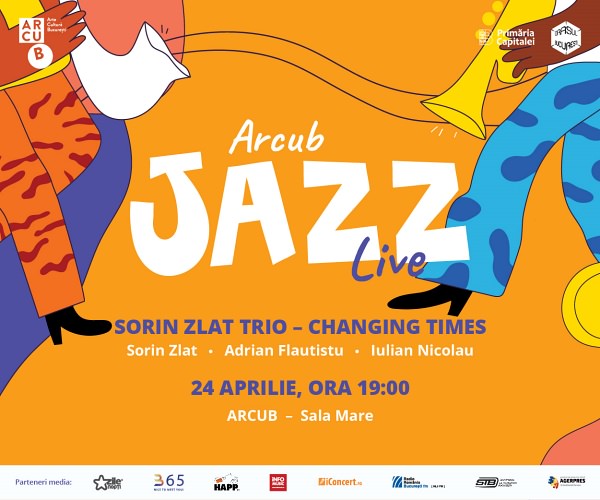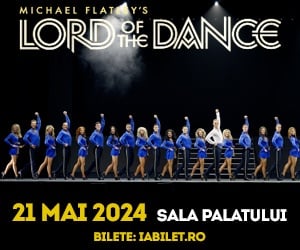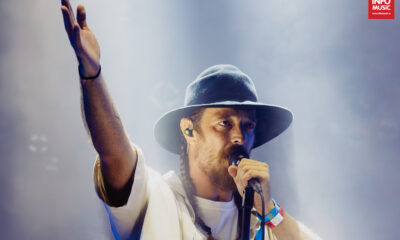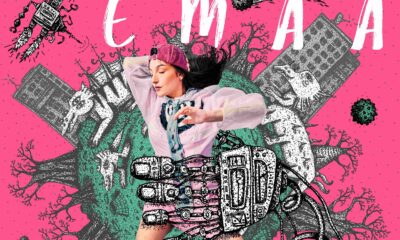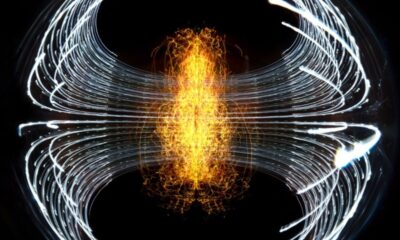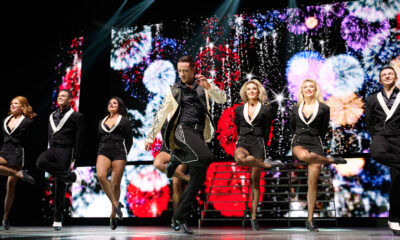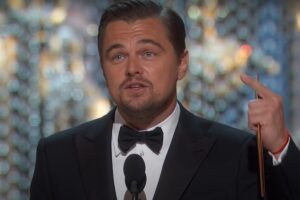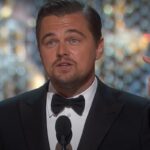Mike Rosenberg, cunoscut sub numele de scenă Passenger, este un cântăreț și compozitor de folk-rock din Brighton, Anglia, care a câștigat un număr impresionant de premii pentru activitatea sa muzicală. Cu toate că și-a pornit cariera cântând la colțurile străzilor din UK, a ajuns în scurt timp să umple stadioane din toată lumea, după ce single-ul "Let Her Go" s-a clasat pe prima poziție în topurile din mai multe țări și a atins succesul internațional.
Pe 1 iulie 2022, Passenger are programat primul său concert în România, cu acest prilej acordându-ne un interviu via Zoom. În continuare puteți parcurge atât transcriptul în limba română al interviului, cât și pe cel în limba engleză.
Raluca: Bună! Mă bucur să te cunosc! Eu sunt Raluca, de la InfoMusic, o publicație online din România. Știu că acum ești în turneu, deci probabil că programul tău este destul de aglomerat. Ce faci, cum ești?
Passenger: Mă simt grozav. Tocmai m-am întors din America de Nord acum câteva săptămâni. De fapt sunt acasă acum, dar mâine plecăm în Islanda, în Reykjavík. Așa că ăsta este, oarecum, debutul festivalurilor și concertelor din vară și da, de abia aștept să înceapă. Evident, după perioada de izolare din pandemie, este pur și simplu o plăcere să călătorești, să susții concerte din nou.
Raluca: Ai mai fost în Islanda până acum? Sau va fi prima ta vizită?
Passenger: Am mai fost o dată în Islanda, nu pentru a concerta, ci pentru a face niște clipuri, pentru activități turistice și pur și simplu pentru că e minunat acolo. Da, este primul meu concert în Islanda și urmează și primul meu concert în România, de asemenea.
Raluca: Da, și suntem foarte fericiți că vei concerta aici. Chiar urma să te întreb ceva legat de asta. Va fi și pentru prima oară când vii în România?
Passenger: Da, nu mai mai fost niciodată în România, nici măcar ca turist, așa că sunt cu adevărat entuziasmat. Sunt foarte bucuros. Știi, pe canalele de social media, de ani de zile mă tot întreabă diverse persoane când o să vin în București. Și întodeauna răspunsul e: <<Da, într-o zi voi veni, într-o zi voi veni. >>. Iar acum se întâmplă în sfârșit, așa că sunt cu adevărat nerăbdător să vin să vă văd.
"Fiecare țară ascultă muzică într-un mod ușor diferit, dar, până la urmă, oamenii sunt oameni"
Raluca: Suntem foarte fericiți că o să vii. Am o curiozitate: abordezi diferit concertele din țările pe care nu le-ai mai vizitat?
Passenger: Bună întrebare. Nu cred. Cred că un concert e un concert și, totodată, oamenii sunt oameni, iar ăsta este un lucru minunat, pe care îl înveți atunci când călătorești peste tot în lume. Sincer vorbind, nu sunt diferențe mari...ok, sunt diferențe culturale și fiecare țară ascultă muzică într-un mod ușor diferit, dar până la urmă oamenii sunt oameni și cred că să mă conectez cu publicul este tot ceea ce-mi doresc să fac pentru totdeauna. Așa că da, poate că e o abordare foarte puțin diferită, dar în realitate e cam aceeași perspectivă.
Raluca: Ce-ți dorești să vezi atunci când ești în fața unui public? Ce fel de reacții îți plac cel mai mult?
Passenger: Cred că...pentru că susțin concertul singur, nu am o trupă, sunt doar eu cu chitara, așa că cele mai bune concerte pentru mine sunt acelea în care publicul te urmează cu adevărat. În momentele liniștite sunt și ei liniștiți și ascultă cu adevărat fiecare cuvânt, iar în momentele mai antrenante cântă cu mine și o iau razna. E o cerință dificilă pentru public să le facă pe amândouă. E mult mai ușor să ai fie un public foarte tăcut pe întreg parcursul show-ului, fie un public foarte gălăgios de la început până la sfârșit. Să ceri publicului să urce și să coboare cu tine e ceva greu de realizat pentru spectatori, dar atunci concertele sunt cele mai bune.
Raluca: Atunci știi că s-au conectat cu adevărat la muzica ta.
Passenger: Exact. Și cred că e așa pentru că muzica mea are însemnătate prin versuri și poveștile pe care le spune..așa că da. Acea liniște pe care trebuie să o ceri publicului e o solicitare dificilă de făcut pentru un artist, dar dacă publicul face asta, atunci show-ul e cu adevărat special.
"Se întâmplă ceva magic atunci când îți cânți piesele pe stradă"
Raluca: Știu că uneori scrii piese din perspectiva altor persoane, așa cum ai făcut când ai scris "Suzanne". Te-a inspirat vreodată cineva din public să scrii ceva? Poate nu o piesă întreagă, dar poate să-ți fi dat o idee.
Passenger: Da, cu siguranță. Obișnuiam să cânt în stradă destul de mult. Aici se numește "busking". Așa că am întâlnit foarte mulți oameni, pentru că e atât de informal, nu e ca la un concert, unde luminile se sting, urc pe scenă și începe un spectacol. Atunci când cânți pe stradă te oprești din a cânta și cineva vine la tine și vorbești cu acea persoană și devine mult mai mult decât un concert. Am întâlnit o mulțime de oameni extraordinari în acea perioadă, care m-au inspirat foarte mult. Știi, se întâmplă ceva magic atunci când îți cânți piesele pe stradă. E ca și cum le-ai împărtăși oamenilor ceva, iar în schimb ei își doresc să-ți împărtășească povestea lor.
"Cred că fiecare persoană are, probabil, o poveste demnă de relatat într-o piesă"
Raluca: E intim.
Passenger: Este foarte intim și nu m-aș fi așteptat niciodată, dar pare că a cânta în stradă provoacă această reacție din partea oamenilor, așa că s-a întâmplat de multe ori ca cei din public să vină și să-mi spună poveștile lor, iar uneori acele povești ajung să fie piese. Așa că da, clar. Cred că fiecare persoană are, probabil, o poveste demnă de relatat într-o piesă, indiferent dacă ei reușesc să ți-o spună sau nu.
Raluca: Este minunat că gândești așa, că fiecare persoană are o poveste specială. Ai putea să-mi dai un exemplu de piesă scrisă mai recent care a fost inspirată de o persoană pe care ai văzut-o pe stradă?
Passenger: Da...din păcate, de la debutul pandemiei de Covid nu am mai putut cânta pe stradă, dar piesele "Travelling Alone" și "Riding to New York" și "David" sunt astfel de exemple. Aceste trei piese îmi vin în minte atunci când mă gândesc la oameni pe care i-am întâlnit pe stradă. Da..
"Nu scriu la fel de multe piese, dar dacă duc o piesă până la final, înseamnă că e suficient de bună. Cred că atunci când eram mai tânăr scriam sute de piese"
Raluca: Ți-ai început de ceva timp cariera în muzică. Așa cum ai menționat mai devreme, ai început cântând pe stradă, apoi ai semnat cu o casă de discuri. Câțiva ani mai târziu, ai avut un hit uriaș, "Let Her Go", iar acum ești un artist consacrat. Mă întrebam: e mai ușor acum pentru tine să scrii muzică, având acești ani de experiență? Scrii piese mai repede, sau îți dai seama imediat ce funcționează și ce nu? Este procesul diferit?
Passenger: Asta e o întrebare cu adevărat interesantă. Cred că da, este cu siguranță mai ușor să fac muzică acum din mai multe motive și, totodată, pentru că înainte nu aveam bani și nu puteam să merg într-un studio și nu-mi permiteam să le fac pe toate, știi?
Raluca: Desigur.
Passenger: Practic era foarte dificil. Acum, evident, sunt foarte norocos să am propriul meu studio și să-l pot folosi oricând. Așa că la nivel practic, este mai ușor, cred. Da, experiența este de mare ajutor în ceea ce fac, pentru că acum cred că scriu mai puțin. Nu scriu la fel de multe piese, dar dacă duc o piesă până la final, înseamnă că e suficient de bună. Știi, cred că atunci când eram mai tânăr scriam sute de piese și poate că îmi lua o perioadă de timp să găsesc zece despre care să pot spune că sunt ok, sunt bune, restul sunt îngrozitoare. Iar acum, cu experiența acumulată, este plăcut, pentru că, ok, poate că nu scriu la fel de multe, dar dacă scriu o piesă, știu instinctiv că sunt pe un drum bun. Am scris suficiente piese până acum ca să știu că, da, e ceva special în legătură cu o anume melodie. Așa că da, e mai ușor. Cred că un aspect interesant este, totuși, faptul că toată lumea vorbește despre cât de dificil este să ajungi un artist recunoscut.
Raluca: Da.
"Să menții o carieră, asta e ceva despre care nu vorbește nimeni. Este foarte dificil"
Passenger: Și este, bineînțeles că este greu. Este foarte greu să ai acea piesă sau orice ar fi care să..
Raluca: Să declanșeze o conexiune.
Passenger: Da. Să-ți permită să intri în subconștientul oamenilor. Dar să menții conexiunea, odată ce ai avut acea piesă, este foarte dificil. Să menții o carieră, asta e ceva despre care nu vorbește nimeni. Este foarte dificil, pentru că trebuie să continui să faci muzică și să aduci publicul alături de tine și să continui să faci lucruri interesante pentru cei care te ascultă. Iar asta este o provocare, cu siguranță.
Raluca: Mereu m-am întrebat ce anume îi face pe oameni să se îndrăgostească de o piesă. În cazul tău, de exemplu, ce anume te face să te implici emoțional și să te conectezi profund cu o piesă? Și ai putea să-mi dai și un exemplu de astfel de piesă, una la care te întorci mereu. Poate fi o piesă pe care ai scris-o tu, sau pe care a scris-o un alt artist.
Passenger: Asta e o întrebare foarte bună. Cred că unul dintre cele mai magice lucruri legate de muzică este faptul că asculți o piesă și pentru tine ea înseamnă ceva. Poate nu are aceeași semnificație pentru artistul care a compus-o ori pentru oricine altcineva, dar tu ai o conexiune unică cu ea. Ăsta e un lucru extraordinar, daca stai puțin să te gândești. Așa că este ceva profund individual și particular muzica. Încerc să mă gândesc la o piesă cu care am eu o astfel de conexiune. Cred că pentru mine, Simon and Garfunkel, Paul Simon este artistul meu preferat și obișnuiam să-l ascult când eram copil și l-am ascultat mereu, de-a lungul anilor. Așa că atunci când vorbești despre o piesă ca "The Boxer" sau "Homeward Bound" sau oricare din piesele astea, sunt piese minunate, în primul rând. Sunt cu adevărat profunde și geniale, sunt piese pline de emoție. Peste asta adaugi 40 sau aproape 40 de ani de ascultat aceste piese. Atașezi atât de multe lucruri acestor piese, individual, e atât de multă nostalgie, atât de multe amintiri, atâția ani în care ai ascultat piesa. E ca și cum ai avea o relație cu o piesă, știi? E ca un vechi prieten, cred.
Raluca: Exact.
Passenger: Poți mereu să te întorci la acele piese, îți poți petrece timpul cu ele și nu se schimbă niciodată și sunt mereu alături de tine. E o legătură foarte specială.
Raluca: E reconfortant.
Passenger: Atât de reconfortant. Eu nu mă gândesc la muzica mea în felul ăsta. Gândesc așa despre muzica lui Paul Simon sau a lui Neil Young sau a lui Joni Mitchell. Dar mi se întâmplă uneori să vorbesc cu un fan Passenger și să văd că are această conexiune.
Raluca: Această legătură emoțională.
Passenger: Și trebuie să ai mare grijă și să fii foarte respectuos pentru că sentimentul ăsta este...este extraordinar. Da, este extraordinar când se întâmplă asta.
"Le iei oamenilor muzica live și realizezi dintr-o dată că wow, ăsta este escapism. Este o dimensiune a vieții care este foarte, foarte importantă și fără ea viața devine foarte limitată și foarte plictisitoare"
Raluca: Acum nu vreau să devin prea filozofică, dar de ce crezi că avem nevoie de muzică în viețile noastre? Pentru că avem nevoie, cu certitudine. Chiar nu mi-aș putea imagina viața fără muzică. Tu cum vezi lucrurile, ca muzician?
Passenger: Îmi vin în minte multe, multe motive, dar e ceva interesant în faptul că nemaisusținând concerte pentru un an și jumătate, doi ani, la primele concerte pe care le-am avut, pentru mine și pentru public, și sunt sigur că orice artist și trupă ar spune același lucru, experiența a fost magică. E ca și cum toată lumea a înțeles, poate pentru prima oară în viețile noastre, cât de importană e trăirea asta. Le iei oamenilor muzica live și realizezi dintr-o dată că wow, ăsta este escapism. Este o dimensiune a vieții care este foarte, foarte importantă și fără ea viața devine foarte limitată și foarte plictisitoare. Și nu doar când vorbim despre muzică live. Ce vreau să spun face referire și la spectacolele de teatru și alte tipuri de reprezentații, oricare ar fi ele.
Raluca: Orice formă de artă.
Passenger: Da! Da, exact. Fără ea, viața este plată. Cred că domeniul artistic, muzica și orice activitate creativă îi oferă vieții profunzime și o conturează. Așa că da, ăsta e un lucru mare, nu? E un mare lucru.
Raluca: Asta este una dintre lecțiile învățate în pandemie, că avem nevoie de lucrurile astea în viețile noastre.
Passenger: Avem nevoie de oameni și avem nevoie de muzică. Cred că de asta avem nevoie. Da.
"Mi se pare fascinant felul în care timpul trece pentru toată lumea și cum nu te poți întoarce în trecut și nu poți controla viitorul și toate aspectele astea"
Raluca: Povestește-mi acum, te rog, despre ultimul tău album, "Birds That Flew and Ships That Sailed". Ce te-a inspirat să faci albumul ăsta și de ce ai ales să-l lansezi fără o casă de discuri?
Passenger: Toate sunt întrebări foarte bune. Am casa mea de discuri și uneori lucrăm cu case de discuri mai mari la albumele care credem că au o rezonanță comercială și pot performa bine pe radio și în zona asta de audiență mare. Alteori scriu un album care este mai intim și mai delicat și mai subtil și, știi, e dificil să faci ca orice piesă să ajungă la radio, cu atât mai mult o modestă baladă folk. Așa că în momentul în care am realizat asta m-am gândit că oricum nu o să ajungă la radio. Nu va performa foarte bine din punct de vedere comercial, așa că am să-l prezint lumii pentru ca oamenii interesați să-l poată asculta. Și e plăcut. E mai puțină presiune, mai puțină publicitate. Acum, cu Spotify și toate platformele online, e ceva de mare impact să lansezi brusc muzică nouă pentru fanii tăi fără toată tevatura și anunțuri de genul: <<Albumul meu va fi lansat peste 3 luni, precomandați-l, blah, blah, blah>>.
Raluca: Partea de promovare.
Passenger: Da. Până apare albumul, toată lumea e la modul: <<Da, da, știm>>. E un pic.. e ceva epuizant.
Raluca: Vorbești prea mult despre asta.
Passenger: Da, da. E foarte, foarte distractiv să poți să spui: <<Albumul e lansat și poți să-l asculți acum>>. Și a fost foarte plăcut să observ reacțiile. Cred că a fost o surpriză atât de binevenită pentru public și s-a simțit minunat toată acțiunea asta. Iar în ce privește partea de inspirație, cred că este un album cu un sound fidel stilului clasic Passenger. Sunt niște piese cu mesaj. Cred că, pe măsură ce înaintez în vârstă, trecerea timpului devine o tematică recurentă în piesele mele. Și mi se pare fascinant felul în care timpul trece pentru toată lumea și cum nu te poți întoarce în trecut și nu poți controla viitorul și toate aspectele astea. Cred că asta e tema prezentă pe întreg albumul.
Raluca: Ți s-a întâmplat să scrii piese gândindu-te cum vor reacționa oamenii atunci când le vor asculta, sau lucrul ăsta se întâmplă în altă parte a procesului? De unde începi de obicei?
Passenger: E foarte periculos să faci asta, să încerci să scrii o piesă care să fie pe placul tuturor. Am făcut asta, cu siguranță. Te gândești: <<Oh, o să scriu piesa asta care va avea trei minute și jumătate și refrenul va fi așa și posturile de radio o vor iubi și blah, blah, blah>>, și nu se întânplă așa. E o porcărie. În cazul meu, așa ajung să scriu cele mai proaste piese, când încerc să obțin ceva. Și cele mai bune piese pe care le scriu sunt cele care...ies la iveală, pur și simplu. Fără să analizez. De fapt, nici măcar nu-mi folosesc creierul prea mult, ceea ce e un lucru.
Raluca: E emoție.
"Nu toată muzica are un impact imediat, iar în zilele noastre e foarte multă presiune, în special în zona comercială a muzicii, ca totul să te lovească imediat din plin"
Passenger: Da, pur și simplu vine dintr-un loc mai profund. Nu te gândești la asta, pur și simplu apare pentru că așa trebuie să se întâmple. Așa că da, e un proces fascinant songwriting-ul, dar cred că cel mai nepotrivit lucru pe care poți să-l faci este să încerci să obții ceva, dar sunt sigur că sunt persoane care se pricep foarte bine la asta. Cred că oamenii care scriu muzică pop înțeleg foarte bine ce-i trebuie unei piese și unde ar trebui să ajungă și în ce moment ar trebui să vină acel refren mare și așa mai departe. Și asta este o altă formă grozavă de artă. Eu știu, însă, din perspectiva mea, că atunci când încerc să fac asta, nu iese nimic bun. Chiar nu e ok. Așa că trebuie să aștept ca acele momente de reală onestitate să apară.
Raluca: Cred că, de obicei, producătorii sunt cei care urmăresc trendul sau ce ascultă oamenii într-un anumit moment.
Passenger: Da. Și e interesant pentru că, știi, piesele pot fi foarte, foarte populare pentru o perioadă scurtă de timp și apoi dispar, iar alte piese sunt lansate, oamenilor le place, iar popularitatea lor crește treptat, pentru că e ceva acolo, e o profunzime care necesită timp. Nu toată muzica are un impact imediat, iar în zilele noastre e foarte multă presiune, în special în zona comercială a muzicii, ca totul să te lovească imediat din plin.
Raluca: Da, așa e.
Passenger: Poate avea și niste subtilitate. Pot fi și niște nuanțe, știi ce spun?
""Let Her Go" a fost un hit accidental, nu am crezut niciodată că va fi o piesă mare"
Raluca: Cred că ceva similar s-a întâmplat cu "Let Her Go". Piesa nu a devenit hit imediat. A crescut treptat în popularitate și a devenit din ce în ce mai cunoscută.
Passenger: Da, exact așa a fost. Și a fost un hit accidental, nu am crezut niciodată că va fi o piesă mare. Și...da, a fost ceva uimitor. Dar ai dreptate. Ai perfectă dreptate. A crescut din ceva foarte modest și a devenit ceva foarte popular. Așa că da, a fost un proces uimitor.
Raluca: Știu că scrii constant muzică. Ai piese noi pregătite și pentru concertul din România?
Passenger: Da, poate. Poate una sau două. Încerc de obicei să cânt câte o piesă pe care nu a mai ascultat-o nimeni până acum. Așa că da, poate. E interesant, pentru că am acum 14 albume și e foarte dificil să cânt într-un concert ce vrea toată lumea. Dar încerc să cânt niște piese mai vechi, niște piese mai noi și, desigur, piesele cunoscute.
Raluca: Ce plănuiești să faci după concert? Ai ceva în plan?
Passenger: Bună întrebare. N-am nicio idee. Avem două concerte în România, unul în București și unul în Constanya? Pronunț corect?
Raluca: În Constanța. La mare.
Passenger: Da, cred că trebuia să concertăm în cadrul Form Days Festival, dar apoi datele s-au mutat și acum am un concept de headliner acolo. Nu am nicio idee, dacă ai vreo sugestie, te rog să-mi spui, pentru că mă gândesc acum ce aș putea să fac.
Raluca: Dacă îți place să mergi în pub-uri și-ți place muzica alternativă, avem cluburile Expirat și Control. Au muzică faină și e o atmosferă plăcută. Le-ai putea încerca.
Passenger: Sună grozav. Bine, o să le caut. Mulțumesc.
Raluca: OK. Sper să te simți bine la noi, atât în timpul concertului, cât și după. Mulțumesc mult că ți-ai făcut timp pentru acest interviu.
Passenger: A fost.. Știi ce? A fost o zi destul de dificilă, pentru că interviurile nu au fost extraordinare până acum. Mulțumesc mult. Au fost, sincer, niște întrebări grozave.
Raluca: Îți mulțumesc, ești amabil.
Passenger: Vorbesc serios. Te aștept la concert, dacă ai timp.
Raluca: Da, mi-ar plăcea. Mulțumesc! Zi faină!
Passenger: Da, și ție. Pa pa.
Raluca: Pa pa.
ENGLISH VERSION | Passenger: "Connecting with a crowd is all I ever want to do"
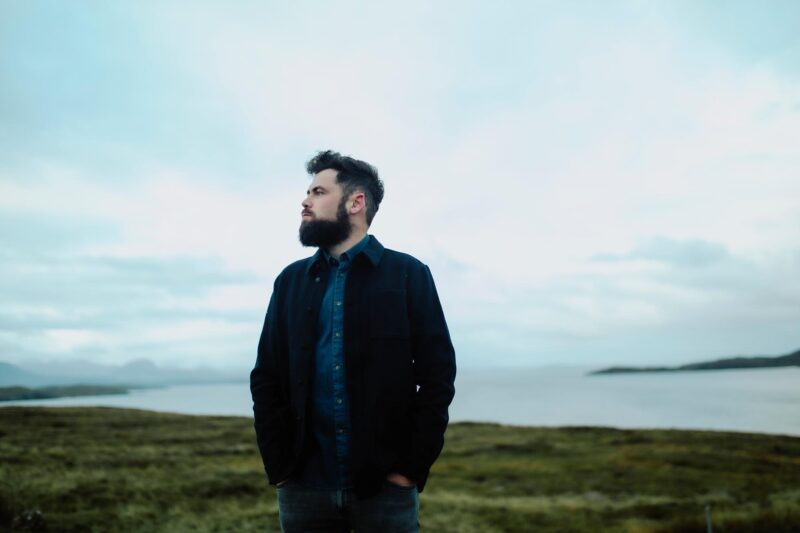
Passenger │ FOTO: Mila Austin
The way music reaches the audience is always accompanied by mystery. A song can mean something to you, and to someone else it can take on a whole new meaning, as Mike Rosenberg, aka Passenger, has noticed. I understood from the interview he gave us via Zoom that his connection with the audience is very special and that nothing he does is random or forced. Music comes to him at the right time, and the audience receives it with the same sincerity and openness with which Passenger offers it.
Raluca: Hello! Nice to meet you! I am Raluca, from InfoMusic, an online magazine from Romania. I know you are on tour right now, so I guess your schedule must be pretty tight. How are you?
Passenger: I'm great. I just got back from North America a few weeks ago. Actually I'm at home right now, but we go to Iceland tomorrow, on Reykjavík. So that's sort of the start of the summer festivals and concerts and yeah, really looking forward to it. Obviously after lockdown it's just such a pleasure to be out in the world, playing music again.
Raluca: Have you been to Iceland before? Or is it your first time now?
Passenger: I've been to Iceland once before, not to play a concert, but just to make some videos and just because it's beautiful. Yeah, it's my first concert in Iceland and actually it will be my first concert in Romania as well.
Raluca: Yeah, and we are very happy to have you here. This is exactly what I was going to ask you now. This will also be your first trip to Romania?
Passenger: Yeah, I've never been to Romania at all, not even as a tourist or anything, so, honestly, it's really exciting. I'm so excited. You know, on social media, for years there's been people asking me to come to Bucharest. And always the answer is: <<Yeah, one day, one day. >> And now it's finally here, so I really can not wait to come and see you guys.
"Every country is slightly different with the way that they listen to music, but people are people"
Raluca: We are so happy to have you here. I was wondering, do you approach differently shows in countries you never visited before?
Passenger: Good question. I don't think so. I think a show is a show and, also, people are people, which is something wonderful that you learn while you're travelling the world. Really, there isn't much difference...ok, there's cultural differences and every country is slightly different with the way that they listen to music, but people are people and I think just connecting with a crowd is all I ever want to do. So yeah, I think really maybe slightly you approach it differently, but not really.
Raluca: What are you looking for when you're in front of an audience? What kind of reactions do you enjoy most?
Passenger: I think.. because I play on my own, there's no band, so it's just me and a guitar, so the best concerts for me are when an audience really goes with you. So in the quiet zones they are really quiet and they are really listening to every word and on the louder songs they are singing and they are going crazy. It's a lot to ask for an audience to do both. It's easier to have a very quiet audience the whole time or a very loud audience the whole time. But to ask an audience to kind of come up and down with you is a lot and that's when the concerts are the best ones.
Raluca: That's when you know that they really connected to your music.
Passenger: Exactly. And I think that's because my music is so much about the story and the words..so yeah. At times that quiet that you have to ask the audience is a lot to ask for an artist, but if they do it is really special.
"Something magical happens when you go and play songs in the street"
Raluca: I know you sometimes write songs from other people's perspective, like you did with "Suzanne". Has somebody from the audience ever inspire you to write something? Maybe not an entire song, but perhaps give you an idea.
Passenger: Yeah, definitely. I used to play in the street a lot. We call it busking over here. So I think I met so many people. Because it's so informal, it's not like a concert where the lights go down, I come on stage and it's a performance. When you play in the street you stop a song and then somebody comes over and has a chat and it's much more. I've met a lot of amazing people around that time that really inspired me a lot. You know, something magical happens when you go and play songs in the street. It's like you're sharing something with people and in return they come up and they wanna share their story with you.
Raluca: It's intimate.
"I think everybody has a story probably worth writing a story about"
Passenger: It's really intimate and I would have never expected it but it seems to sort of provoke that reaction from people, so the amount of time that people came over and just kind of told me their stories, and sometimes those stories would end up being songs. So yeah, definitely. I think everybody has a story probably worth writing a story about, weather they are able to tell you or not.
Raluca: It's wonderful that you think about it like that. That everybody has a special story. Can you give me an example of maybe a recent song that was inspired by somebody you saw maybe on the street?
Passenger: Yeah.. unfortunately, with Covid, I haven't been able to play on the street for so long, but "Travelling Alone" and "Riding to New York" and "David"'s there. They are the three that kind of spring to mind about people that I've met in that situation. Yeah.
Raluca: You are doing music for quite some time now. As you said earlier, you started out busking, then you got a record deal. A few years later, you got a massive hit, "Let Her Go", and now you are an established artist. I was wondering is it easier for you to make music right now with all this experience? I mean, do the songs come to you faster or do you immediately know what works or what doesn't? Is the process different?
Passenger: That's a really interesting question. I think yes, it's definitely easier to make music now in many ways also because, you know, back before, like I didn't have any money and I couldn't go into a studio and I couldn't afford to do it all, you know?
Raluca: Of course.
"I don't write as many songs, but if I write a song to the end, it means it's good enough. You know, I think when I was younger I would write hundreds of songs"
Passenger: Practically it was very difficult. Now, obviously, I'm very lucky to have my own studio and I can use it whenever. So on a practical level, it's easier, I think. Yeah, experience is really helpful with this because you know, I think I write less now. I don't write as many songs, but if I write a song to the end, it means it's good enough. You know, I think when I was younger I would write hundreds of songs and maybe it would take a while for me to find ten or like, OK, yeah, these are good. The rest of them are terrible. And now I think with experience is nice because OK, maybe I don't write so many, but if I write the song, it means that I know in my gut, it's like, OK, I'm on to something. I've written enough songs now to know that, yeah, there's something special about this one. So yes, it's easier. I think what's interesting, though, I think everybody always talks about how difficult it is to break through as an artist.
Raluca: Yes.
Passenger: And it is, of course it is. It's so hard to have that one song or whatever it is that that, you know...
Raluca: Makes it click.
"Maintaining a career, no one ever talks about that. It's really difficult"
Passenger: Yeah. Breaks you into people's sort of subconscious. But maintaining it is also really difficult once you've had that song. So then actually maintaining a career, no one ever talks about that. It's really difficult, because it's, you know, you have to keep on making music and bringing people back in and making it interesting for people. And that's a challenge, you know, for sure.
Raluca: I always wondered what makes people fall in love with a particular song. In your case, for example, what makes you engage and become deeply involved with a song? And can you give me an example of such a song, the one that you would always come back to. It can be a song that you wrote or maybe somebody else's.
Passenger: That's a really good question. I think one of the most magical things about music is that you hear a song and it means something to you. Maybe it doesn't mean that for the artist that wrote it or to anybody else, but you have a unique connection with it. That's amazing, really, if you think about it. So I think yeah, it's a deeply individual thing music. I'm just trying to think about a song that I really connect with in that way. I think for me, Simon and Garfunkel, Paul Simon is my favorite artist, and I used to listen to him when I was a kid and have listened to him my whole life. So, you know, when you're talking about a song like "The Boxer" or "Homeward Bound" or any of these kind of songs, they're wonderful songs in the first place. They're really clever and they're brilliant, they're emotive songs. But then you add 40 or nearly 40 years of listening to these songs. You attach so much to those songs, you know, individually, so much nostalgia, so many memories, so many years of listening to that song. So it's like you have a relationship with a song, you know? It's like an old friend, I think.
Raluca: Exactly.
Passenger: You can always go back to and always hang out with and they never change and they're always the same and they're always there for you. It's a.. it's a pretty special thing.
Raluca: Comforting.
Passenger: So comforting. And actually it's.. because I don't think about my music like that. I think about Paul Simon's music like that or Neil Young or Joni Mitchell. But then sometimes I talk to a Passenger fan and I can see that they have that.
Raluca: Have that feeling.
Passenger: And you have to be really careful and really respectful of that because that's... that's amazing. That's...yeah, that's amazing when that happens.
"You take live music away from people and you realize suddenly that, wow, this is escapism. This is a dimension of life that is really, really important and without it life becomes very narrow and very boring"
Raluca: Now, I don't want to get too philosophical, but why do you think we need music in our lives? Because we definitely do. I mean, I really couldn't imagine our lives without music. From your perspective as a musician.
Passenger: I think of several, several reasons, but it's interesting not having played live music for a year and a half, two years and the first concerts I did, for me and for the audience, and I'm sure every artist and band says the same thing, it was magical. Like, suddenly everyone understood, maybe for the first time in our lives, how important this is. You take live music away from people and you realize suddenly that, wow, this is escapism. This is a dimension of life that is really, really important and without it life becomes very narrow and very boring. Not just live music. I mean, I'm talking about like, you know, theater or performance or whatever it is.
Raluca: A form of art.
Passenger: Yeah! Yeah, exactly. Without it, life is flat. I think arts, music, and anything creative gives it depth and dimension. So, yeah, I mean, that's big, isn't it? That's big.
Raluca: That's one of the lessons that the pandemic taught us that we need that in our lives.
Passenger: We need people and we need music. I think that's what we need.
Raluca: Now tell me about your latest album, "Birds That Flew and Ships That Sailed". What was the inspiration behind it and why did you choose to release it without a record company?
Passenger: All very good questions. So I have my own label and sometimes we work with other bigger labels on an album that we think, you know, is a bigger sound and can do something on radio and all that kind of stuff. And other times I write an album that is quite small and quite delicate and subtle and, you know, it's very difficult to get any kind of song on the radio. Let alone like a small, folky ballad. So at that point I thought, well, it's not going to go on the radio, it's not gonna', you know, do very well commercially. So I'm just going to put it out into the world for people who want to listen to it. And it's nice. It's less pressure, less bullshit. I think nowadays with Spotify and that kind of thing, it's actually quite a powerful thing to just one day drop new music for your fans without the whole: <<My album's coming out in three months, preorder it, blah, blah, blah>>.
Raluca: The promotion stuff.
Passenger: Yeah. By the time the album comes out, everyone's like: <<Yeah, yeah, we know>>. There's something exhausting.
Raluca: You talk too much about it.
Passenger: Yeah, yeah. Like there's something really, really fun about being like, you know, cool, it's out now and you can go and listen to it. And it was really nice to see the response. I think it was just such a nice surprise for people and yeah, it felt good. I mean, as far as the inspiration went, I think it's a fairly classic Passenger sounding album. Some thoughtful songs. I think, as I get older, the passing of time seems to become a continuous theme in my songs, and I find it fascinating how time passes for everyone and how you can't go back to the past and you can't really control the future and all of this kind of stuff. So I think that was a running theme throughout the record.
"Not all music is instant, and I think nowadays is so much pressure, especially in the commercial music world, for everything just to smash you around the face"
Raluca: Do you ever write the song thinking about how would people react to it, or does that come later into the process? Where do you usually start from?
Passenger: It's a really dangerous thing to do that, I think, to try and write a song that's going to please everybody. I've done it before, for sure. You think: <<Oh, I'll write this song that's going to be three and a half minutes and the chorus is going to be like this and the radio are going to love it and blah, blah, blah>>, and they don't. It's shit. Like, for me it's always the worst songs that I write is trying to achieve something. And the best songs that I write are the ones where I'm just like.. it just comes out. There's no overthinking. In fact, I don't really use my brain very much at all, which is a good thing.
Raluca: It's emotion.
Passenger: Yeah, it just comes from a deeper place. You don't think about it, it just comes out because it's right. So it's a fascinating process, songwriting, but the worst thing you can do is try and I mean, I'm sure some people are really good at that. I think, you know, people who write pop music have a really good understanding of what a song needs and where it should go and the moment that, you know, you want to feel the big chorus or whatever. And that's an amazing art form as well. I just know from my perspective, if I try and do that, it's not good. It's really no good. So yeah, I just have to wait for those really honest moments to arrive.
Raluca: I think it's usually the producers the ones who know what the trend is or what the people want to listen in a certain moment.
Passenger: Yeah. And it's interesting because, you know, songs can do really, really well for a short amount of time and then they drop off and other songs can like, you release it and people like it and then it grows steadily because there's something, there's a depth to it which takes time. Not all music is instant, you know, and I think nowadays is so much pressure, especially in the commercial music world, for everything just to smash you around the face.
Raluca: Yeah, yeah.
Passenger: There can be some subtlety. There can be some nuance, you know?
""Let Her Go" was an accidental hit, we never thought that was going to be a big song"
Raluca: I think something similar to that happened with "Let Her Go". I mean, it wasn't an instant hit. It grew and it became bigger and bigger.
Passenger: Yes, exactly right. And it was an accidental hit, we never thought that was going to be a big song. And it just... yeah, it was crazy. But you're right. You're absolutely right. It grew from something very small to something very big. So yeah, amazing process.
Raluca: I know that you're constantly writing music. Are there any new songs that we might be hearing in Romania, at your concert here?
Passenger: Yeah, maybe. Maybe one or two. I usually try and play one song that nobody has really heard before. So yeah, maybe, yeah. It's an interesting one, because I have 14 albums now so it's very difficult to play what everybody wants in a concert. But I just try to play some old songs, some new songs, and of course the biggest songs as well.
Raluca: What are you planning to do after the gig? Do you have any plans?
Passenger: Good question. I have no idea. So we have two concerts in Romania, one in Bucharest and one in Constanya? Am I saying that correctly?
Raluca: Constanța. On the seaside.
Passenger: Yeah, I think we were meant to do Form Days Festival, but then the dates moved, so now I just have like a headline concept there. I don't know, if you have any suggestions, please tell me because I'm thinking about what should I do.
Raluca: If you like going to pubs and you like alternative music, we have Expirat Club or Control Club. They have very nice music and nice atmosphere. You could try them.
Passenger: That sounds awesome. All right. I'm going to look into that. Thanks.
Raluca: OK, so I hope you'll have a very nice time here, during the show and also after the show. And thank you very much for taking the time to do this interview.
Passenger: It was.. You know what? It's been quite difficult today, because the interviews haven't been amazing up until now. Thank you so much. It's been honestly.. brilliant questions.
Raluca: Thank you for the kind words.
Passenger: No, really. Come to the concert if you have time as well.
Raluca: Yeah, I would love to. Thank you! Have a nice day!
Passenger: Yeah, you too. Bye bye.
Raluca: Bye bye.
